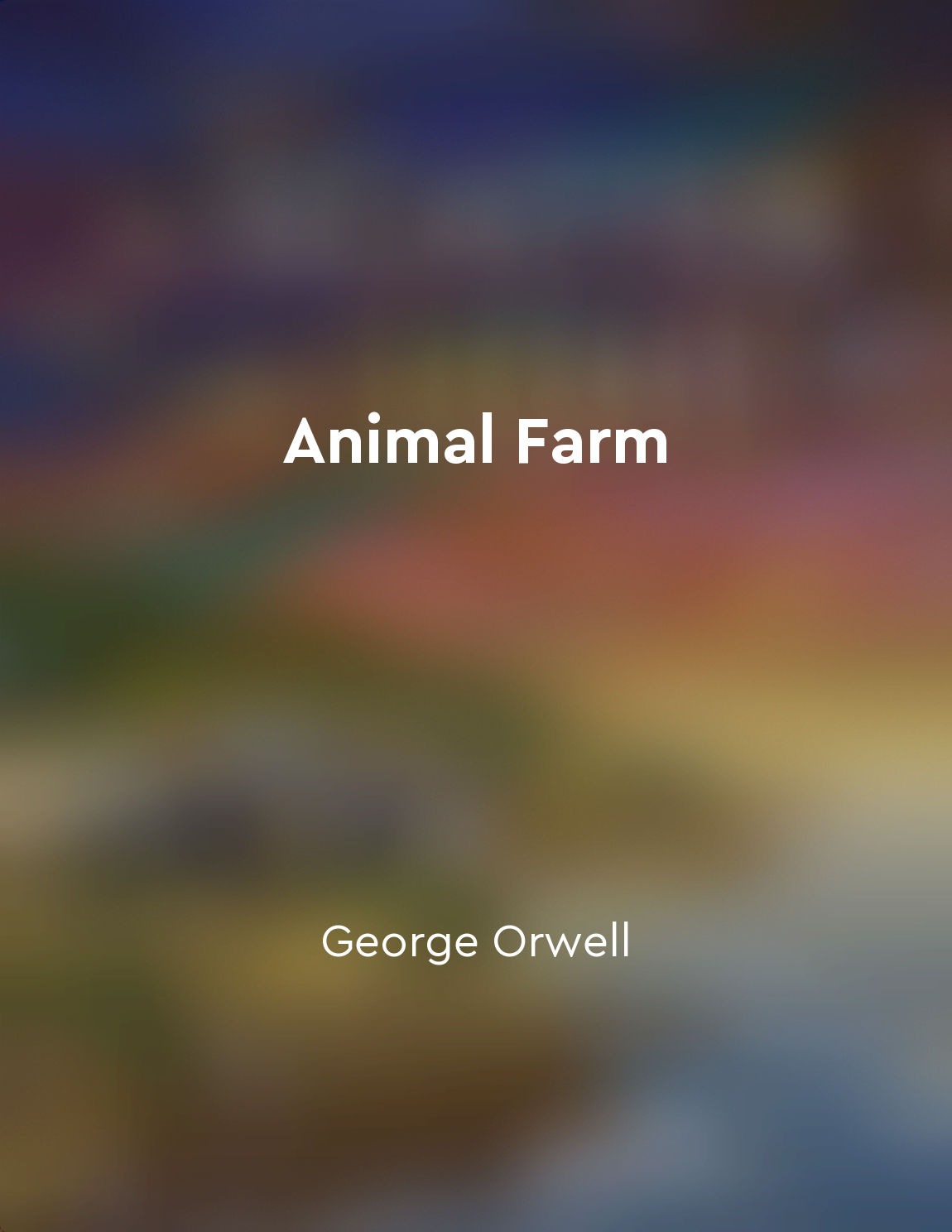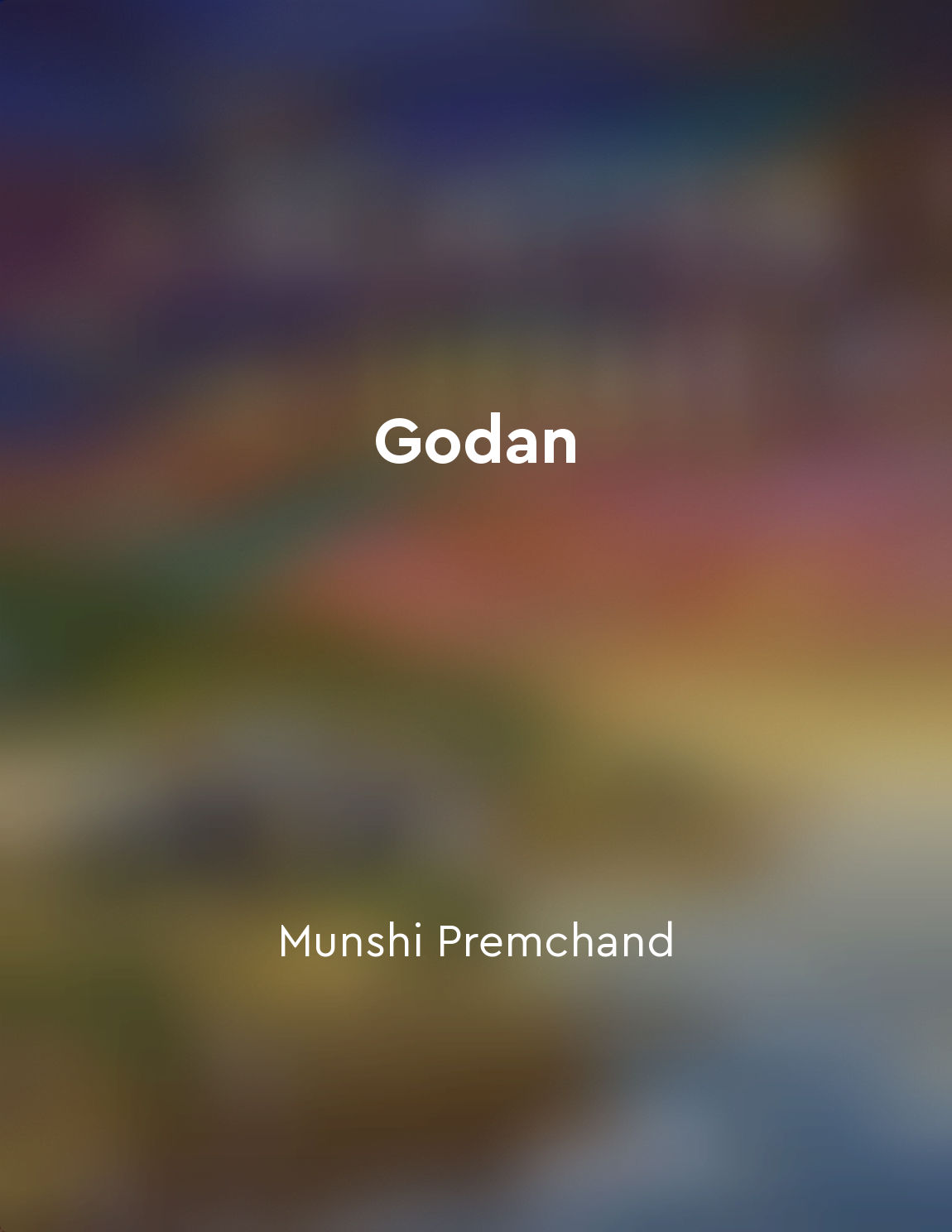Inequality from "summary" of The Grapes of Wrath by John Steinbeck
Throughout the novel, the stark reality of inequality is vividly portrayed in the lives of the Joad family and their fellow migrants. The stark divide between the haves and the have-nots is glaringly evident as the wealthy landowners exploit and oppress the impoverished workers. The unequal distribution of wealth and resources is a recurring theme, highlighting the harsh disparity between the privileged few and the struggling masses. The Joad family, like countless others, find themselves at the mercy of ruthless landowners who profit from their desperation and destitution. The Grapes of Wrath paints a poignant picture of the injustices faced by the disenfranchised, as they are denied basic rights and dignity in a society that values profit over humanity. The harsh living conditions and lack of opportunities push the migrants to the brink of despair, as they struggle to survive in a world that seems determined to crush their spirit. As the Joads journey towards the promise of a better life in California, they are met with hostility and exploitation at every turn. The wealthy landowners and business owners view them as nothing more than disposable commodities, to be used and discarded as they see fit. The stark contrast between the opulence of the ruling class and the squalor of the working poor serves as a stark reminder of the pervasive inequality that permeates society. Despite their hardships, the migrants cling to their dignity and sense of solidarity, forging bonds of camaraderie and resilience in the face of adversity. Their collective struggle against the forces of oppression and exploitation speaks to the enduring human spirit, resilient in the face of overwhelming odds. The Grapes of Wrath serves as a powerful testament to the resilience of the human spirit in the face of injustice and inequality, a timeless reminder of the need for empathy and compassion in a world rife with suffering and hardship.Similar Posts

Pigs manipulate rules for own benefit
The pigs on Animal Farm soon took over the role of leaders, claiming that they were the most intelligent animals on the farm. T...
Harsh working conditions in meatpacking industry
The men in the meatpacking industry toiled endlessly in the grim and unforgiving environment of the slaughterhouses. From sunri...
Describing the harsh conditions of the French peasantry
In that unfortunate country there was scant little light to distribute among the people who sat in darkness. A desolate country...
Healing through the power of storytelling
In a land where wounds run deep, where scars are not just skin-deep but soul-deep, there exists a potent remedy that transcends...
Cherishing moments of peace and simplicity
The beauty of cherishing moments of peace and simplicity is woven throughout the pages of this timeless classic. As we journey ...
Choices shaping individual fates
Effia and Esi were sisters, born in different villages in Ghana. Effia was married off to a British slaver, while Esi was captu...
Promises of social reform and justice
In the squalid, crowded slums of Packingtown, where poverty and desperation were the norm, a glimmer of hope arose in the form ...
The importance of unity and solidarity
The concept of unity and solidarity is a recurring theme in 'Noli Me Tangere'. Throughout the novel, Rizal portrays the importa...

Hardworking farmer struggles with debt
The hardworking farmer named Hori struggled under the weight of debt that seemed to grow larger with each passing day. He toile...

The human cost of progress weighed heavily on the conscience
The transformation of the world came at a price that few were willing to acknowledge. The relentless pursuit of progress left a...
